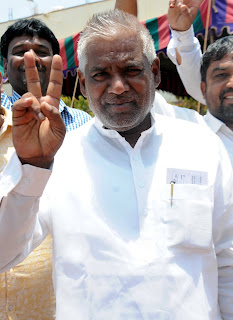Article 371- J- : Expectations of the people
Article 371- J- : Expectations of the people
Affirmative action to protect the interests of Hyderabad Karnataka region has resulted in an Amendment to the Article 371-J of the Indian Constitution. It seems to be the first step towards the emancipation of the area that seemed to be perpetually backward. The underlying principle behind the Amendment is that the central and state governments should take equal responsibility for the development of this backward region.
Like many things in public discourse, the amendment seems to be an issue that is much talked about without being understood clearly.
The amendment is a complex issue with several undertones. But on the surface, it hopes to achieve three things- equitable distribution of resources between all regions of the state, fill gaps in human resource development and infuse more funds to the backward region from the union and state governments.
The most important of course is uniform development of human resource. This should be achieved by providing regional reservation in education and employment. It should address the problem of vacancies in government departments. Finally, it should make sure the region gets some public investment in vital areas like education, health, and employment generation.
So what do the people expect? They want good education and jobs for their children. They want the state government to focus on the backward district and ensure good governance. They also want some development schemes and welfare programs to address the problem of wealth disparity. This could be done by making it easier for more people to create wealth, coupled with progressive taxation.
A time tested method of ensuring equal opportunity in education and employment is by scheduling reserved quotas. The Constitution was amended only to create an exception to the rule of equality and to allow such protective discrimination.
This time, the determining identity would be geographical and not social.
The government needs to fix a clear and transparent domicile policy to let people benefit from the categorization. Second, no government order has specified the source, format or extent of additional funding to the region. The union government needs to clarify this. And soon.
A glaring mistake of the Amendment is that the benefits of reservation are limited only to the region. They do not extend to the state or other parts of India. This is not so in the Telangana model. Though the state government has formulated a rule to provide a pan –Karnataka quota of 8 per cent reservation to Hyderabad Karnataka residents, some have argued this would not stand scrutiny in a court of law. Ideally, the government should have created a Constitutionally valid 20 per cent state quota and 80 per cent regional quota for HK residents. By this, for example, they could get 80 per cent of seats in a college in the region and 20 per cent of the seats in a college outside HK districts. The 20 per cent is equal to the region’s share in the state’s population. This seems to have given a go by.
The second is the argument that Bellary district that was part of British India, need not have been clubbed with the Nizam districts of HK region. It did not suffer from the historical backwardness that others did, without doubt. Equating an unequal with the equal is to continue inequality, to quote from the Mandal commission report. Since there are no sub regional quotas, youth from Bellary where the quality of education is higher, are likely to out beat those from other districts. This remains a real threat.
A doubt expressed by proponents of decentralization is whether the dependence on the central government would go against principle of decentralization and weaken the federal structure. The government should implement the 371-J provisions without scope to centralization of power or authority.
Another upsetting argument is that the Amendment is likely to make HK region a landlocked demographical island, reducing the exchange of people, ideas or practices with other parts of the state. Demands by the state government employees for the creation of a sub state cadre point to such a possibility. If that were to happen, the medicine could turn out to be more fatal than the disease. This is best avoided.
Finally, at a philosophical plane, it may all be about the attitude.
Just after independence, we were warned by David Mc Clelland who studied human behaviour that success or failure is in the mind. Dr Mc Clelland who conducted experiments in neighbouring Andhra concluded that societies that promotes the need for achievement or entrepreneurship, tend to do better than others. In his books Need for Achievement and Achieving society, the American Psychologist urged us to sow the seeds of enterprise among our youth.
If there are no focused and time bound programmes to do this, other welfare or development programmes could achieve little. The governments in Bangalore and New Delhi should take this up at a mission mode. Making each one a job creator seems to do more good to us that all other ideas, currently being discussed.
Paper written for a seminar by Hampi Kannada University, Hyderabad Chamber of Commerce and Industries and Prajnya Kanoonu Salaha Samiti, Gulbarga.
By Rishikesh Bahadur Desai, Reporter, The Hindu
Eom

Comments